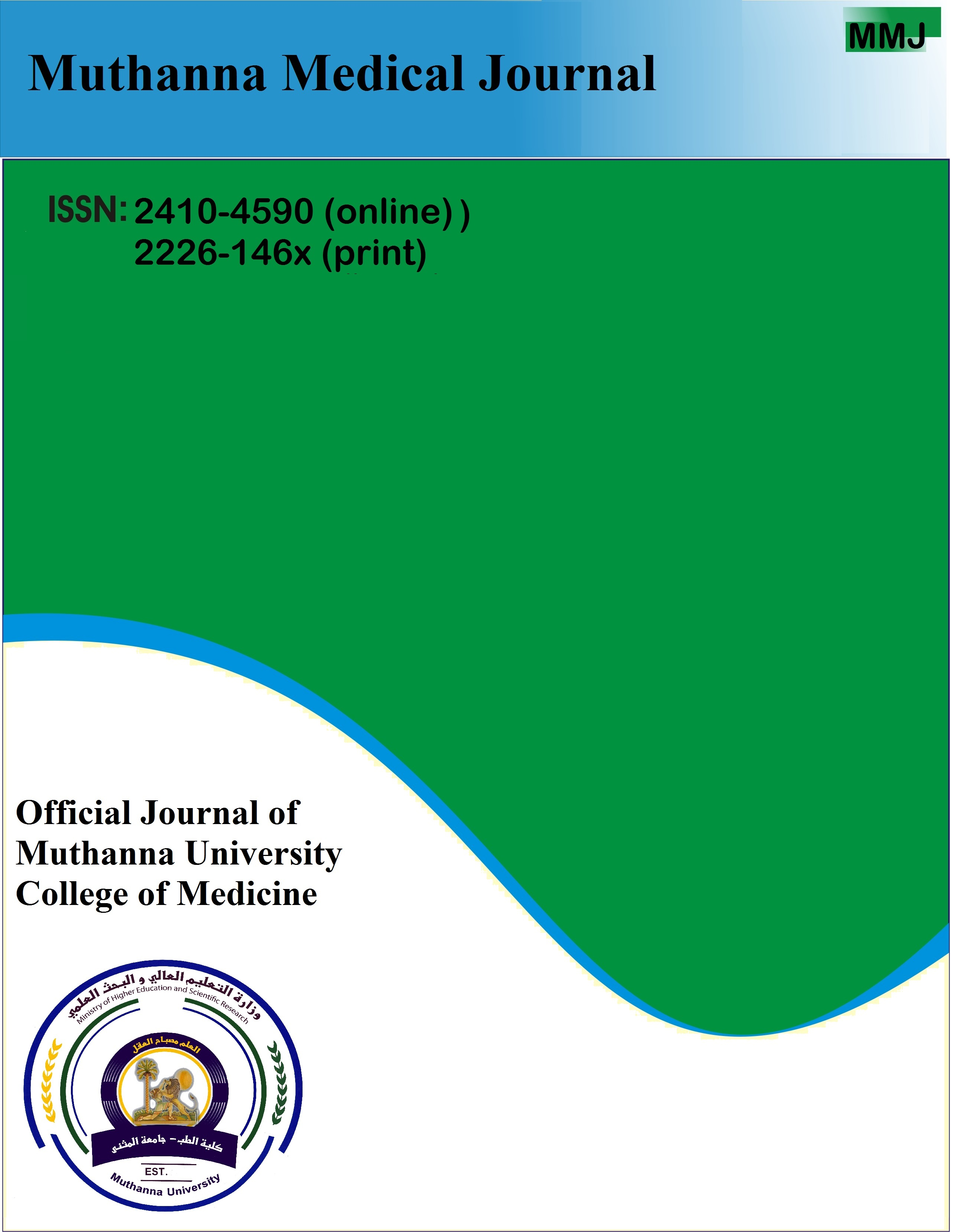Muthanna Medical Journal
Volume 9, Issue 2, 2022 Page 185-201
http://dx.doi.org/10.52113/1/1/2022-185-201
Hind Ahmed Abd Alaziz ¹*, Andalus A. Aldakhel
Correspondence author: hindahmed678@yahoo.com
¹Al-Karkh Baghdad health directorate, Baghdad.
Received 19 September , Accepted 30 November 2022, Available online 17 December 2022.
Copyright © 2022 HA. This is article distributed under the terms of the Creative Commons Attribution License http://creativecommons.org/licenses/by/4.0), which permits unrestricted use, distribution, and reproduction in any medium, provided the original work is properly cited
Copyright © 2022 HA. This is article distributed under the terms of the Creative Commons Attribution License http://creativecommons.org/licenses/by/4.0), which permits unrestricted use, distribution, and reproduction in any medium, provided the original work is properly cited
Abstract
Breast cancer (BC) is the most prevalent form of cancer in Iraq, accounting for 21% of all female cancers. It is considered to be a progressive disease with a poor prognosis if detected late. The low level of knowledge and practice of breast self-examination is an important method of prevention. The objective of this study to assess knowledge of Iraqi women at Baghdad-Alkarkh about breast cancer risk factor and their practices of breast self-examination. The aim of the study to assess knowledge of a sample of Iraqi women at Baghdad-Alkarkh about breast cancer risk factors and their practices of breast self- examination, clinical breast examination and mammography, to assess the attitude and practices of breast cancer screening methods. Across-sectional study was conducted using interviewer- administered questionnaires. Samples of 400 females were systematic randomly selected from women attending primary health care centers at Baghdad-Alkarkh sector. Statistical package for social sciences (SPSS) version 25 was used to study the statistical association between variables. This study showed that two third of participants had knowledge of BSE and poor practicing for BSE. The main source of information among all participants via PHCCs. In conclusion, good knowledge was noticed among women attending primary health care centers. Practicing of breast self-examination was poor.
Keywords: Breast cancer, Lipid profile, Mammography, Primary health care centers